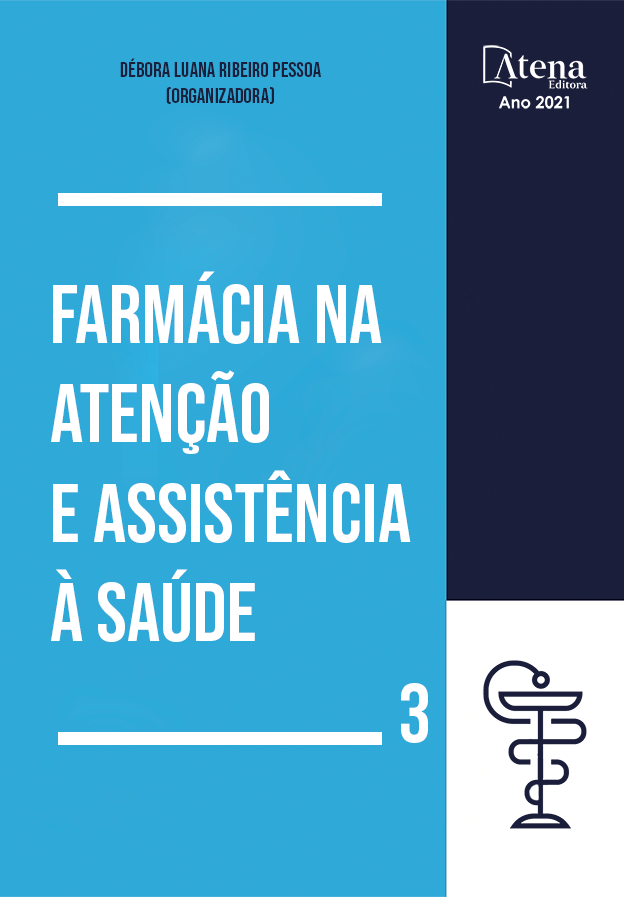
BAIXA NOTIFICAÇÃO DOS EVENTOS ADVERSOS NOS ESTABELECIMENTOS FARMACÊUTICOS
A subnotificação tem sido uma das dificuldades da farmacovigilância. Estima-se que apenas cerca de 5% dos eventos adversos a medicamentos (EAM) são por notificação espontânea. O presente estudo busca verificar o qualitativo das notificações dos eventos adversos relatados por farmacêuticos no Brasil e em outros países. Essa questão nem sempre é vista como uma prioridade e sua detecção nem sempre é feita de forma adequada. Foi realizada uma breve revisão da literatura utilizando as bases de dados Scopus e PubMed em agosto de 2020, sem restrição da data de publicação; entre os descritores utilizados estavam “evento adverso” e “subnotificação”, excluindo estudos que não tratavam de EAM notificados por farmacêuticos; selecionando dez estudos para elaborar este resumo. É indiscutível a importância dos farmacêuticos comunitários no desempenho das notificações de EAM. Contudo, o Programa Internacional de Monitoramento de Medicamentos da Organização Mundial da Saúde enfatiza que a contribuição quantitativa desses profissionais é pequena, segundo estudos na Itália, França África do Sul e Brasil — país este que tem menos de 300 notificações por milhão de pessoas, — os dados disponíveis enfatizam a baixa notificação de EAM por farmacêuticos. Países como Portugal, Holanda e Cuba, os farmacêuticos comunitários têm maior taxa de participação nas notificações, e desempenham papel significativo nos relatórios de EAM; não só aos medicamentos sem receita, mas também à terapias alternativas. Os estudos demonstraram que a subnotificação de EAM existe em muitos países e enfatizou a importância do profissional farmacêutico nas notificações, pois são especialistas em medicamentos conhecedores de mecanismos e seu comportamento no organismo permitindo uma notificação completa e assertiva. É necessário sensibilizar os profissionais farmacêuticos (e a população) da sua importância a respeito das notificações de maneira oportuna, buscando melhorar a captação e qualidade das notificações.
BAIXA NOTIFICAÇÃO DOS EVENTOS ADVERSOS NOS ESTABELECIMENTOS FARMACÊUTICOS
-
DOI: 10.22533/at.ed.984212203219
-
Palavras-chave: Eventos adversos, subnotificação, farmacêuticos
-
Keywords: Adverse events; underreporting; pharmacists
-
Abstract:
The underreporting of adverse drug events (ADEs) has been a barrier to pharmacovigilance. It is estimated that only approximately 5% of the ADEs are identified through spontaneous reporting. This study sought to investigate the reporting quality of ADEs by pharmacists from Brazil and other countries. The reporting of ADEs is often regarded as a non-essential matter and their detection not properly executed. A brief literature review was performed using the Scopus and PubMed databases on august 2020, without limiting publication dates; the database-specific search terms were “adverse effects” and “underreporting”, excluding studies that did not consider reports communicated by pharmacists and selecting ten studies to write this review. The importance of pharmacists in the performance of ADEs reports is undeniable. However, the World Health Organization (WHO) Programme for International Drug Monitoring (PIDM) emphasizes the quantitatively small contribution of pharmacists to drug safety through ADE reporting. According to studies in Italy, France, South Africa and Brazil – the last with less than 300 reports per million population, – the available data reveal low reporting rates by pharmacists. On the other hand, higher reporting rates were found in Portugal, Netherlands and Cuba, by community pharmacists who displayed a major role managing ADEs, including cases of over-the-counter medications and alternative therapies. The papers demonstrated that there is underreporting in many countries and emphasized the importance of the pharmacists in reporting ADEs, because of their specialized training in pharmaceuticals and its mechanism of action in the body, allowing complete and precise reports. It is necessary to sensitize pharmacists and the population about the importance of these healthcare providers, attempting to improve the detection and reporting quality.
-
Número de páginas: 14
- Bianca Mirelly de Sousa Freitas
- Bruna Caroline Martins Diniz
- Emanoel Guilhermino da Silva Junior
- Daniel Silva Fortes
- Bruna Rosa da Silva


